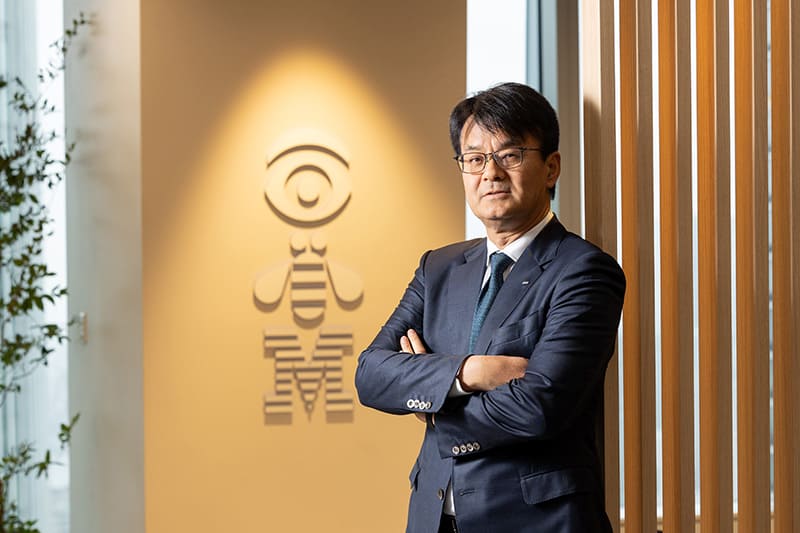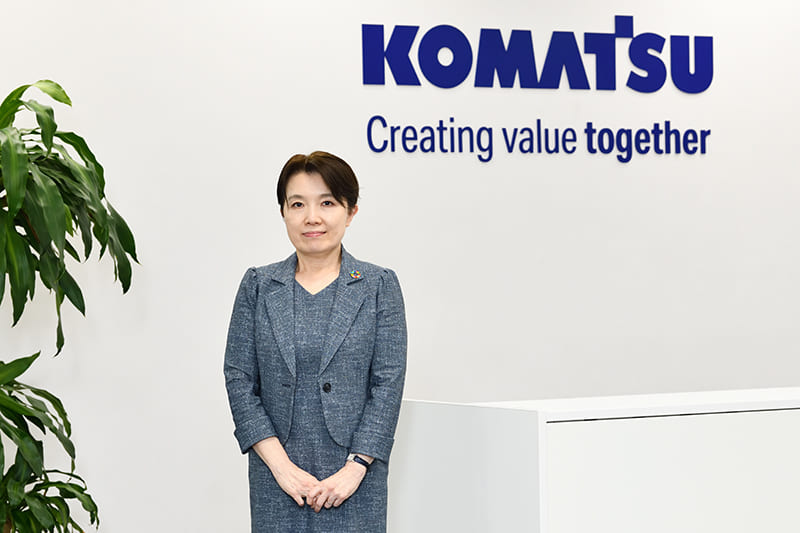March 08, 2024
IBM’s tech advances driven by leadership, collaboration

What makes a company sustainable for decades? Amid fast business transformation around the world, International Business Machines Corp. is a rare example that has not only survived for over a century, but cultivated innovation in various fields including information technology, financial services and space.
The focus of IBM has been technology to create innovation, said Akio Yamaguchi, general manager and president at IBM Japan Ltd. “We are a technology company, so we all need to understand technology as our base,” he said in an interview, part of a monthly series by Naonori Kimura, a partner for the consulting firm Industrial Growth Platform Inc. (IGPI). Developing technologies is a crucial factor for staying competitive, but Yamaguchi said the real purpose is not selling technologies as such but providing services to solve clients’ specific business problems by utilizing technology as a tool.
IBM is known for its clear sense of purpose. Yamaguchi said the technology giant’s philosophy has not changed in the century since Thomas J. Watson Sr. founded the company in 1911, saying, “Be a good corporate citizen.” Toward that end, it has historically emphasized ethics and compliance. In 1965, his son and CEO Thomas J. Watson Jr. wrote, “We accept our responsibilities as a corporate citizen in community, national and world affairs; we serve our interests best when we serve the public interest.”
Another pillar of its philosophy is its emphasis on education. “We have the way of thinking, ‘There is no saturation point in education,’ which is still pervasive companywide,” Yamaguchi said. “We have a number of opportunities for education and are able to improve our skills by ourselves,” and this eventually benefits its clients.
“Think” is another keyword for IBM. For example, when company representatives visit clients, they should think beforehand about the best solution for the clients, Yamaguchi explained.
Diversity and inclusion is also part of the technology company’s philosophy. “However tough the business environment is, we should never forget D&I because it is an extremely important element to create innovation. It is also our social responsibility as a company,” he said.

Lastly, the company believes that technology should be used for right purposes for human beings and should not be unethical. Artificial intelligence has drawn increasing interest since the release of OpenAI’s ChatGPT in 2022, and large technology companies have invested in AI-driven services. Yamaguchi said IBM is keeping data provided by its Watsonx generative AI transparent, allowing users to check that it does not harm morality or enhance unconscious bias in society.
IBM has focused on technology because it is a key factor in innovation that can support business growth with real value, Yamaguchi continued. The country now faces a critical turning point for either achieving economic growth or else staying stagnant like in the past three “lost decades.”
“In the short term, deflation has been overcome, companies have regained the right to set prices, and wage hikes are beginning to take place, mainly at large companies. Stock prices have exceeded the bubble era, and the vicious circle of deflation is finally being broken. The Japanese market has extremely high potential for growth,” Yamaguchi said. “It is time for us all to work hard to release really valuable products to the world.” He pointed out that a number of factors — a declining population and a labor shortage at home and the outbreak of wars abroad — are pushing up the costs of energy, raw materials and labor, prompting Japanese companies to change their old ways.
“So, what should we do to create valuable products with potential profitability in the market? The answer is innovation,” Yamaguchi said. “What’s important is how much we can change and drive innovation with technology.” Investing in the digital and green transformations, focusing on differentiated business portfolios and promoting employees’ re-skilling will all be necessary for such corporate transformation, he added.
He also said Japan must solve the problem of labor liquidity, which has stood in the way of its growth when companies need to overhaul their business portfolios and strategies. “Amid the lack of a social safety net and the culture of not firing employees, management is caught in a dilemma between the business strategy and the existing organization. Even today, management will continue to promote re-skilling, but in order for Japanese companies to carry through with self-improvement, it is essential to strengthen labor market liquidity and the safety net for society as a whole.”
Asked what sustains the company, Yamaguchi pointed to three pillars: the significance of leadership, the formation of a business ecosystem and the utilization of technology.

IBM Japan spends a considerable amount of time nurturing leadership through on-the-job training. Every week, it holds a meeting at which the leaders of every department share updates, starting with bad news. This provides opportunities for taking the initiative and experiencing the high-level decision-making process, Yamaguchi said.
As for the ecosystem, IBM Japan actively forms alliances with other companies in IT and other industries, plus policymakers and academics. In one example, IBM cooperates with hospitals and robot developers in its health care business. “We are building an ecosystem by connecting with others across companies, industries and regions,” he said.
At the end of the interview, asked about IBM Japan’s future in 2030, Yamaguchi said he expects it to further gear up for quantum-centric computing services amid the elevating needs of next-generation technology. In May last year, IBM announced that it would invest $100 million in quantum-computing research with the University of Chicago and the University of Tokyo over the next 10 years, while Google separately said it had signed an agreement with the two universities to invest up to $50 million in the research over the same period. Quantum computing has attracted increasing attention from researchers and scientists because it could help solve certain kinds of problems that classical machines can’t tackle in areas like automotive technology, financial services and pharmaceuticals.
“Our company will probably provide data-oriented solutions using new data offered by quantum computers,” Yamaguchi said, citing autonomous flying cars as an example of high-technology devices that reflect a growing need for quantum computing.
Much higher computational capability than the classical one would be necessary for hundreds of thousands of such vehicles to fly safely in a future traffic control system. “We will be able to provide all sorts of services that are impossible to achieve with current computational abilities,” he said.
Naonori Kimura
Industrial Growth Platform Inc. (IGPI) Partner

IBM has realized a high-level “trade-on” — a win-win increase of both social and economic value — by retaining its founder’s spirit of becoming a good corporate citizen and achieving its performance objectives.
IBM’s high standing today is backed by its high technology. Its ethical policy that technology must be used for the sake of people positively affects all of its activities, from basic research to business.
The source of IBM’s strength comes from its individual workers’ voluntary efforts to continue cultivating their capabilities to create innovation with the support of the company, whose philosophy is “there is no saturation point in education.”
Amid pressure for reform from capital markets and international society as well as a worsening labor shortage, for Japanese companies to continue growing it is essential for them to develop their social and economic values at the same time and transform themselves into truly sustainable companies that create products and services with added value. The power of technology is necessary to realize this vision, IBM Japan President Akio Yamaguchi said firmly.
To address complicated problems, IBM provides solutions through its high technologies and conducts sustainable management by itself. There is no doubt that the presence of such a company will further grow both domestically as well as internationally as a catalyst of the reforms that companies need.


















